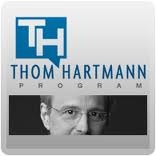
 Today, the Supreme Court heard arguments on whether human DNA can be patented, and be considered intellectual property. Currently, companies, universities, and other scientific group hold patents on at least 4,000 human genes. The ACLU and the Public Patent Foundation challenged gene patents held by Myriad Genetics, arguing that human DNA is a product of nature, and no one should have the right to consider genes intellectual property.
Today, the Supreme Court heard arguments on whether human DNA can be patented, and be considered intellectual property. Currently, companies, universities, and other scientific group hold patents on at least 4,000 human genes. The ACLU and the Public Patent Foundation challenged gene patents held by Myriad Genetics, arguing that human DNA is a product of nature, and no one should have the right to consider genes intellectual property.
The specific genes which Myraid holds patents on are BRCA1 and BRCA2, which account for a substantial portion of inherited types of breast and ovarian cancers. Lori Andrews, a law professor at Chicago-Kent College, wrote an amicus brief on behalf of the American Medical Association, which reads, “Myriad's exclusive control has led to the misdiagnosis of patients and has precluded the deployment of improved genetic tests.”
These patents inhibit researchers' ability to discover medical tests and cures, and they limit doctors' ability to determine the best treatment for patients. In addition to making care less effective, it's simply unacceptable for one company to have intellectual property rights on our genes. Hopefully, the Supreme Court agrees that no one should own our DNA.



